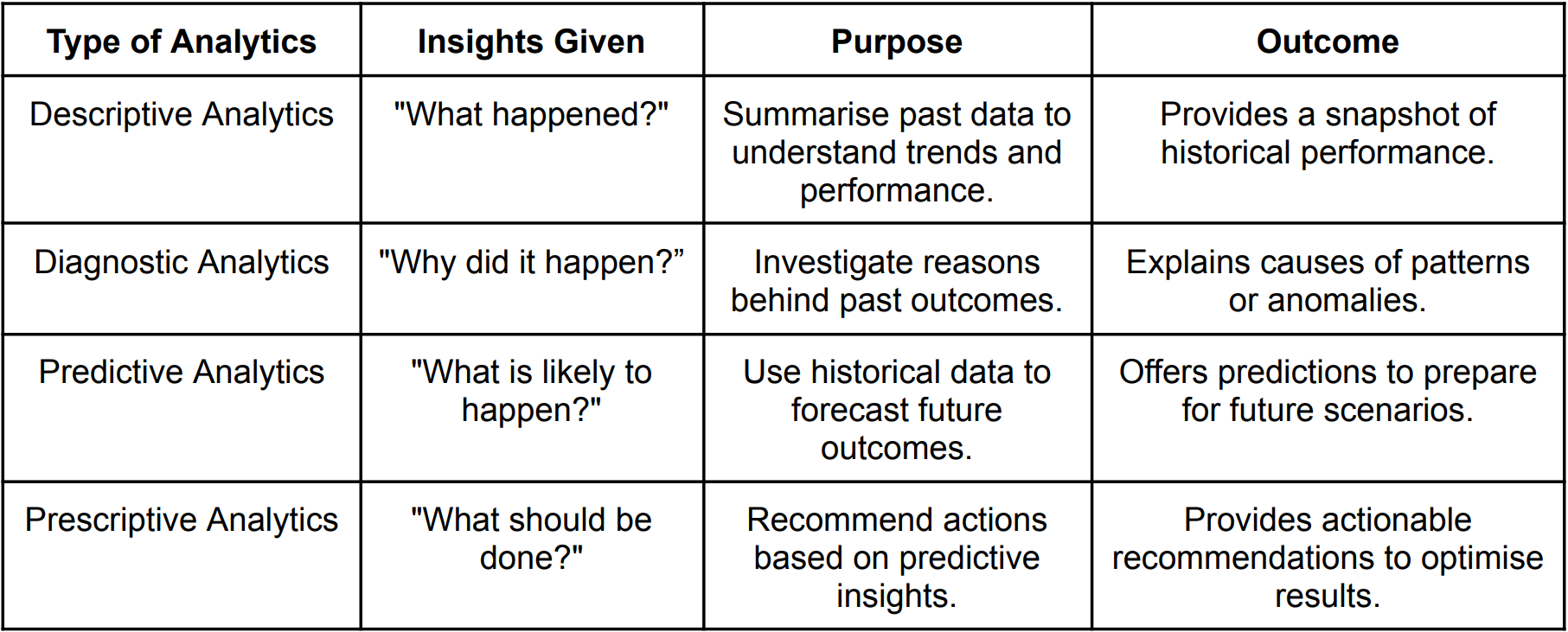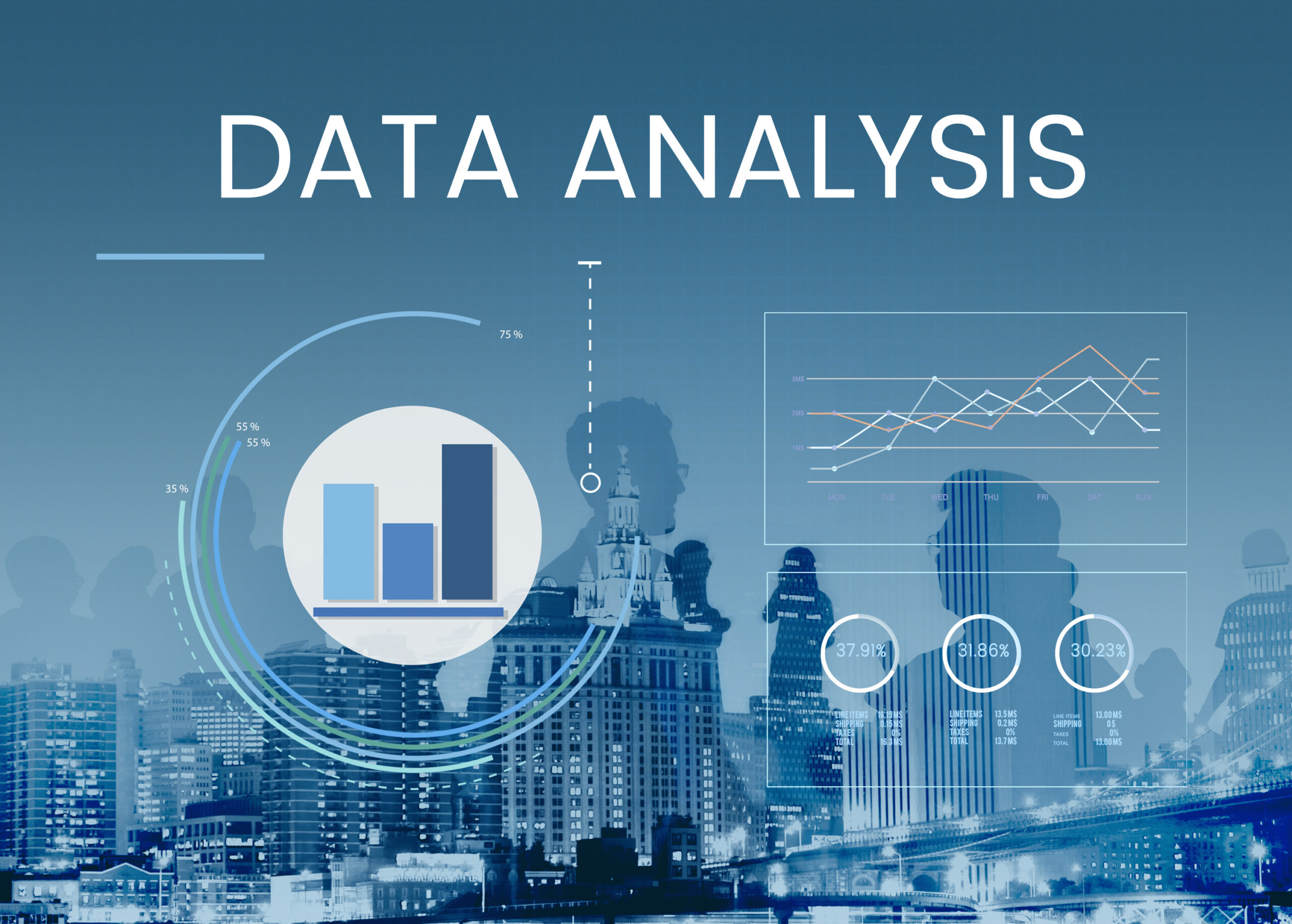What Does a Data Analyst Do?
Data Analysts play a crucial role in data science, focusing on interpreting and visualizing data toextract meaningful insights. They create reports and dashboards thathelp organizations makedata-driven decisions. So, what exactly do Data Analysts do? Know more with Edure Learning.
What is Data Analytics?
Data Analytics examines, transforms, and interprets raw data to discover meaningful patterns, trends, and insights. It is used to help businesses make data-driven decisions, solve problems, and improve efficiency. Organisations can better understand their operations, predict future trends, and optimise strategies through data analysis. Data analytics can be applied across various industries, including healthcare, finance,
retail, manufacturing and many more, to gain insights that can drive growth, reducecosts, and enhance overall performance.
Key components of Data Analytics
- Data Collection: Gathering relevant data from various sources such asspreadsheets, databases or real-time feeds.
- Data Cleaning: The process ensures that data is accurate and free from errors or inconsistencies.
- Data Analysis: Applying statistical or computational methods to process and examine the data.
- Data Interpretation: Drawing meaningful conclusions from the analysis to help guide decision-making.
- Data Visualisation: Presenting data insights through graphs, charts, and dashboards for easier understanding.
There are four types of Data Analytics
1. Descriptive Analytics: Summarises historical data to explain what has happened.
2. Diagnostic Analytics: Investigates why something occurred, focusing on finding causes or correlations.
3. Predictive Analytics: Uses the historical data to forecast what is likely to occur in the future.
4. Prescriptive Analytics: Recommends actions or strategies based on predictive insights to optimise outcomes.
Core Skills Required

Why is Data Analysis important?
● Informed Decision-Making: Provides businesses with data-backed insights,leading to more accurate decisions.
● Operational Efficiency: Helps organisations streamline processes, reduce waste, and improve resource allocation.
● Customer Insights: Enables businesses to understand customer behaviour and preferences, improving satisfaction and retention.
● Competitive Advantage: Organisations leveraging data analytics can stay ahead of competitors by anticipating market trends and making proactive adjustments.
What are the applications of data analytics in various industries?
1. Banking, Insurance, and Securities
In the financial world, data analytics is crucial for risk management, fraud detection, and customer retention. Banks use it to analyse transaction patterns, helping them identify potential fraud before it happens. Insurance companies rely on Big Data to assess risks and determine premiums, while securities firms use predictive analytics to make smarter
investments.
2. Communications, Media, and Entertainment (Including Marketing & Advertising)
Ever wondered how platforms like Netflix or YouTube recommend shows or videos that seem perfect for you? That’s data analytics at work. By studying your past behaviour, these companies create personalised experiences. In marketing, data analytics helps businesses target the right audience, ensuring that ads hit the right people at the right
time.
3. Healthcare and Pharmaceuticals
In healthcare, data analytics saves lives. Doctors use patient data to make better diagnoses and offer personalised treatments. In pharmaceuticals, it’s used to speed up drug development and improve clinical trials. Predictive analytics can even forecast disease outbreaks, allowing for proactive measures.
4. Education
In education, Data Analytics enhances both teaching and learning. Schools and universities use it to track student performance, helping them identify struggling students early. Analytics can also personalise learning experiences, ensuring that each student gets the help they need when they need it.
5. Manufacturing and Supply Chain
In manufacturing, analytics improve operational efficiency. Companies use data to predict equipment failures, reduce downtime, and optimise supply chains. Even the fashion industry leverages data analytics to forecast trends and manage inventory, making sure the latest styles reach the market on time.
6. Transportation and Logistics
How does Amazon ensure that your order arrives right on time? Say thanks to Big Data Analytics! Logistics companies use it to optimise delivery routes, reduce fuel costs, and ensure on-time deliveries. Analytics also helps predict traffic patterns, making transportation networks more efficient.
7. Travel and Tourism
From airlines adjusting ticket prices based on demand to hotels personalising guest experiences, the travel industry is deeply data-driven. Travel agencies even useanalytics to offer perfect recommendations, improving customer satisfaction and loyalty.
8. Government and Public Sector
Governments rely on data analytics to make informed policy decisions. Let it be improving public transportation or allocating healthcare resources, data helps officials respond to the needs of their citizens. Analytics also helps track and predict crime patterns, making communities remain safe.
9. Energy and Utilities
In the energy sector, data analytics optimises the production and distribution of power.Utility companies use smart grids to analyse real-time data, ensuring efficient energyuse. Analytics also helps manage renewable energy sources like solar and wind,balancing supply and demand to reduce waste.
10.Retail and E-commerce
In retail, data analytics is key to understanding customer behaviour. Stores track every click and purchase, using that information to personalise your shopping experience. Whether offering tailored product recommendations or optimising inventory levels, retail companies rely on data to drive sales and enhance customer satisfaction.
How can you Start a Career in Data Analytics?
The demand for data analysts is growing like never before, driven by constant updates and emerging trends in data science. So if you enjoy problem-solving and love working with numbers, this could be your career! Excited about data analytics? Great! Here’s how you can get started.
- Build a Strong Foundation: Learn the basics of data management and analysis through courses in statistics, programming (Python, R, SQL), and data visualisation tools (Tableau, Power BI).
- Get Certified: Gain Certifications from recognised learning centres! Many platforms offer online and offline sessions for students. You can also gain additional certificates in Google Analytics or advanced programs in Data Science, which give you a competitive edge in the job market.
- Work on Projects: Practical experience is essential. Start by analysing publicly available datasets or join an internship where you can apply your knowledge in real-world scenarios.
- Network: Connect with professionals in the field on LinkedIn, attend webinars, or join online communities dedicated to data analytics.
It’s no longer about simply collecting data but understanding it. Data Analytics can turn insights into actions that fuel growth, innovation, and success. When you are trying to figure out why customers are abandoning their carts online, forecast the next big trend in fashion, or stream healthcare operations to save lives, data analytics is the tool you
can trust.
How can Edure help you?
Edure is the perfect learning platform for students wishing to succeed in their lives and careers alike! As the Best Software Training Institute in Kerala, we are proud to be a part of the successful journey of many students who have mastered Data Analytics and Data Science course and are now placed in top MNCs. After completing your 12th-grade graduate or a degree from any stream, Edure has programs to suit your learning style. You can choose what fits your lifestyle with online and offline training options. Let’s open the door to limitless possibilities and secure a bright future!

